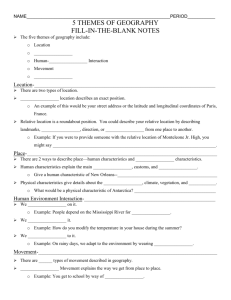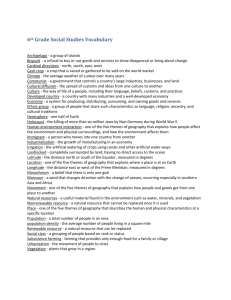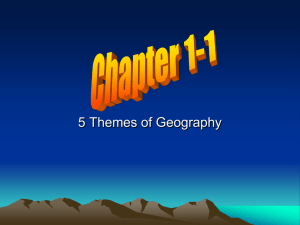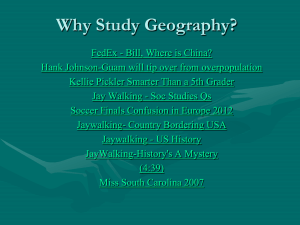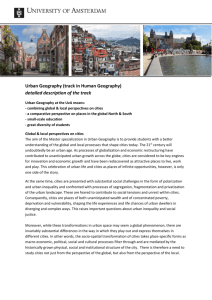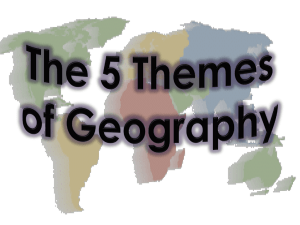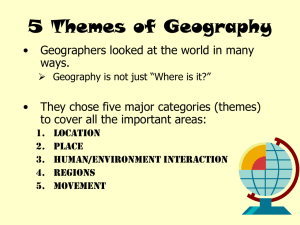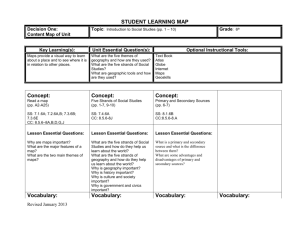Political Geography Research Question Guidelines
advertisement
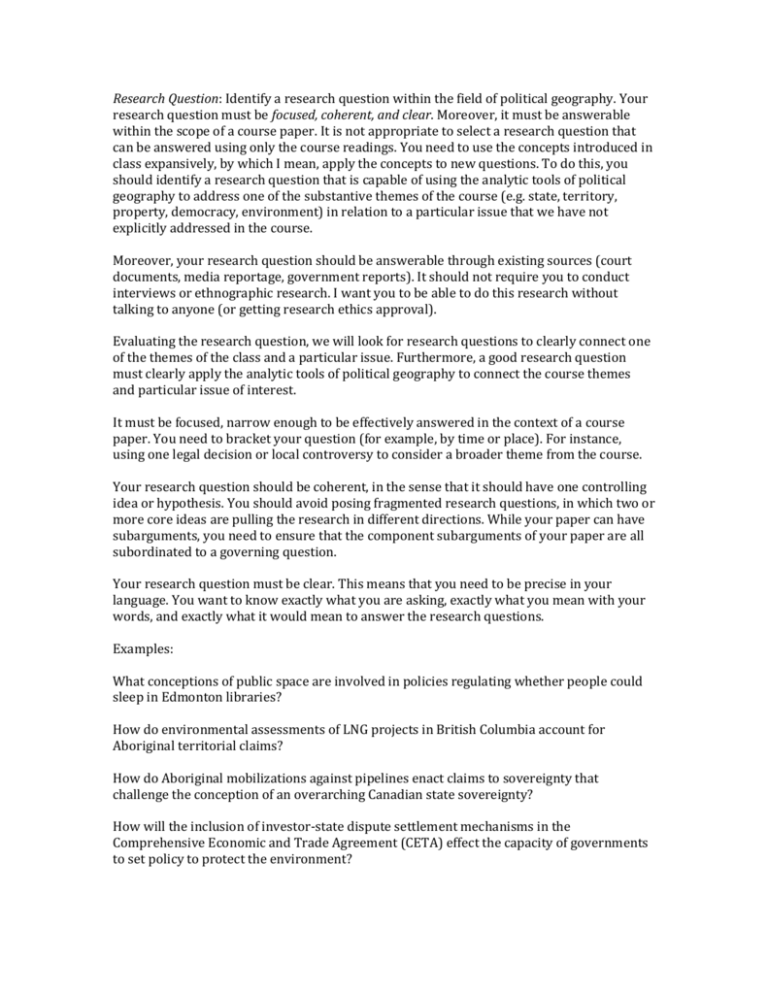
Research Question: Identify a research question within the field of political geography. Your research question must be focused, coherent, and clear. Moreover, it must be answerable within the scope of a course paper. It is not appropriate to select a research question that can be answered using only the course readings. You need to use the concepts introduced in class expansively, by which I mean, apply the concepts to new questions. To do this, you should identify a research question that is capable of using the analytic tools of political geography to address one of the substantive themes of the course (e.g. state, territory, property, democracy, environment) in relation to a particular issue that we have not explicitly addressed in the course. Moreover, your research question should be answerable through existing sources (court documents, media reportage, government reports). It should not require you to conduct interviews or ethnographic research. I want you to be able to do this research without talking to anyone (or getting research ethics approval). Evaluating the research question, we will look for research questions to clearly connect one of the themes of the class and a particular issue. Furthermore, a good research question must clearly apply the analytic tools of political geography to connect the course themes and particular issue of interest. It must be focused, narrow enough to be effectively answered in the context of a course paper. You need to bracket your question (for example, by time or place). For instance, using one legal decision or local controversy to consider a broader theme from the course. Your research question should be coherent, in the sense that it should have one controlling idea or hypothesis. You should avoid posing fragmented research questions, in which two or more core ideas are pulling the research in different directions. While your paper can have subarguments, you need to ensure that the component subarguments of your paper are all subordinated to a governing question. Your research question must be clear. This means that you need to be precise in your language. You want to know exactly what you are asking, exactly what you mean with your words, and exactly what it would mean to answer the research questions. Examples: What conceptions of public space are involved in policies regulating whether people could sleep in Edmonton libraries? How do environmental assessments of LNG projects in British Columbia account for Aboriginal territorial claims? How do Aboriginal mobilizations against pipelines enact claims to sovereignty that challenge the conception of an overarching Canadian state sovereignty? How will the inclusion of investor-state dispute settlement mechanisms in the Comprehensive Economic and Trade Agreement (CETA) effect the capacity of governments to set policy to protect the environment?
